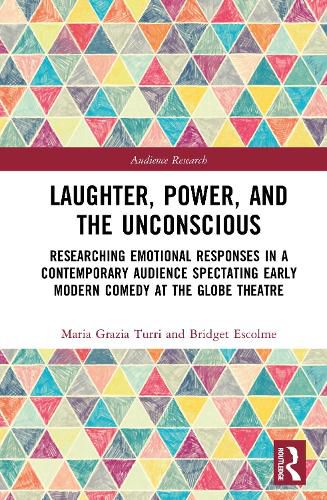Readings Newsletter
Become a Readings Member to make your shopping experience even easier.
Sign in or sign up for free!
You’re not far away from qualifying for FREE standard shipping within Australia
You’ve qualified for FREE standard shipping within Australia
The cart is loading…






Laughter, Power, and the Unconscious offers paradigm-breaking insights into the psychological and sociopolitical dimensions of humour and comedy. Based on an innovative audience experiment at Shakespeare's Globe, the authors develop a revolutionary theory of humour as manic defence, challenging Freud's classic formulations while engaging with contemporary humour theories.
The text explores three key domains: firstly, it establishes and evaluates the theory in comparison to Freud's work in Jokes and their Relation to the Unconscious, while positioning it within major humour frameworks; secondly, it demonstrates the theory's application to Renaissance comedy, examining characters like Malvolio from Twelfth Night alongside stock figures of cuckolds and madmen in both English theatrical traditions and commedia dell'arte; finally, it investigates the theory's broader sociopolitical relevance by analysing war-related humour and racist jokes while addressing comedy's dual capacity to both challenge and reinforce existing power structures.
This volume will appeal to the scholars and students of theatre and performance studies, psychology, literary theory and cultural studies interested in the sociopolitical implications of humour.
$9.00 standard shipping within Australia
FREE standard shipping within Australia for orders over $100.00
Express & International shipping calculated at checkout
Laughter, Power, and the Unconscious offers paradigm-breaking insights into the psychological and sociopolitical dimensions of humour and comedy. Based on an innovative audience experiment at Shakespeare's Globe, the authors develop a revolutionary theory of humour as manic defence, challenging Freud's classic formulations while engaging with contemporary humour theories.
The text explores three key domains: firstly, it establishes and evaluates the theory in comparison to Freud's work in Jokes and their Relation to the Unconscious, while positioning it within major humour frameworks; secondly, it demonstrates the theory's application to Renaissance comedy, examining characters like Malvolio from Twelfth Night alongside stock figures of cuckolds and madmen in both English theatrical traditions and commedia dell'arte; finally, it investigates the theory's broader sociopolitical relevance by analysing war-related humour and racist jokes while addressing comedy's dual capacity to both challenge and reinforce existing power structures.
This volume will appeal to the scholars and students of theatre and performance studies, psychology, literary theory and cultural studies interested in the sociopolitical implications of humour.